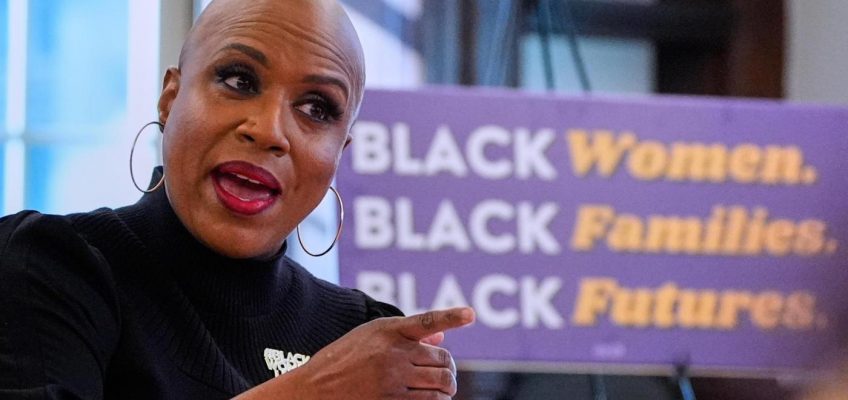By MATT BROWN, Associated Press
In a packed room at library in a downtown Boston, Rep. Ayanna Pressley posed a blunt question: Why are Black women, who have some of the highest labor force participation rates in the country, now seeing their unemployment rise faster than most other groups?
The replies Monday from policymakers, academics, business owners and community organizers laid out how economic headwinds facing Black women may indicate a troubling shift for the economy at large.
The unemployment rate for Black women increased from 6.7% to 7.5% between August and September this year, the most recent month for available data because of the federal government shutdown.
That compares with a 3.2% to 3.4% increase for white women over the same period. And it extended a year-long trend of the Black women’s unemployment rate increasing at a time of broad economic uncertainty.
Many roundtable attendees view those numbers as both an affront and a warning about the uneven pressures on Black women.
“Everyone is missing out when we’re pushed out of the workforce,” said Pressley, a progressive Democrat. “That is something that I worry about now, that you have all these women with specific expertise and specializations that we’re being deprived of.”
And when Black women do have work, she said they tend to be “woefully underemployed.”
Black women had the highest labor force participation rate of any female demographic in 2024, according to the Bureau of Labor Statistics, yet their unemployment rate remains higher than other demographics of women.
Historically, their unemployment rate has trended slightly above the national average, widening during periods of slowed economic growth or recession. Black Americans are overrepresented in industries like retail, health and social services, and government administration, according to a 2024 Bureau of Labor Statistics Survey.
“Black women are at the center of the Venn diagram that is our society,” said Anna Gifty Opoku-Agyeman, a PhD candidate in public policy and economics at the Harvard Kennedy School.
She pointed to April as the month when Black women’s unemployment began to diverge more sharply from other groups. A policy agenda that ignores the causes, she said, could harm the broader economy.
Related Articles
Consumer confidence slides as Americans grow wary of high costs and sluggish job gains
Most US stocks rise, but Nvidia’s drop keeps the market in check
Is mobile banking safe? How to actually protect your money
US retail sales rose slightly in September, adding to months of big gains
Tyson’s beef plant closure in Nebraska will impact a reliant town and ranchers nationwide
Roundtable participants cited many long-standing structural inequities but attributed most of the latest divergence to recent federal actions. They blamed the Trump administration’s downsizing of the Minority Business Development Agency and the cancellation of some federal contracts with non-profits and small businesses, saying those actions disproportionately impacted Black women. Others said tariff policies and mass federal layoffs also contributed to the strain.
The administration’s opposition to diversity, equity and inclusion initiatives was repeatedly mentioned by participants as a cause for a more hostile environment for Black women to find employment, customers or government contracting.
There is no concrete data on how many Black federal workers were laid off, fired or otherwise dismissed as part of President Donald Trump’s sweeping cuts through the federal government.
The attendees discussed a wide range of potential solutions to the unemployment rate for Black women, including using state budgets to bolster business development for Black women, expanding microloans to different communities, increasing government resources for contracting, requiring greater transparency on corporate hiring practices and encouraging state and federal officials to enforce anti-discrimination policies.
“I feel like I was just at church,” said Ruthzee Louijeune, the Boston City Council president, as the meeting wrapped up. She encouraged attendees to keep up their efforts, and she defended DEI policies as essential to a healthy workforce and political system. Without broad-based efforts, the Democrat said, the country’s business and political leadership would be “abnormal” and weakened.
“Any space that does not look like our country and like our cities is not normal,” she said, “and not the city or country we are trying to build.”


Leave a Reply